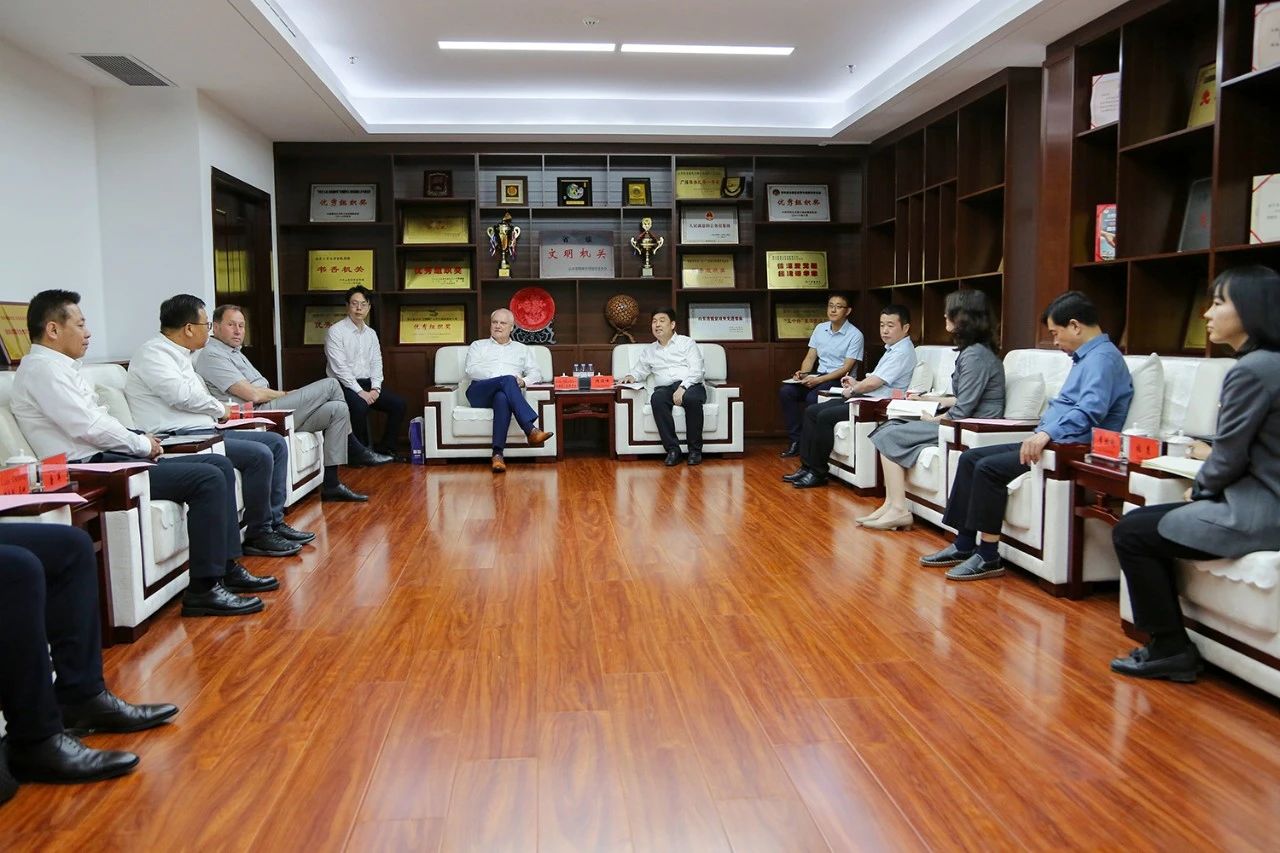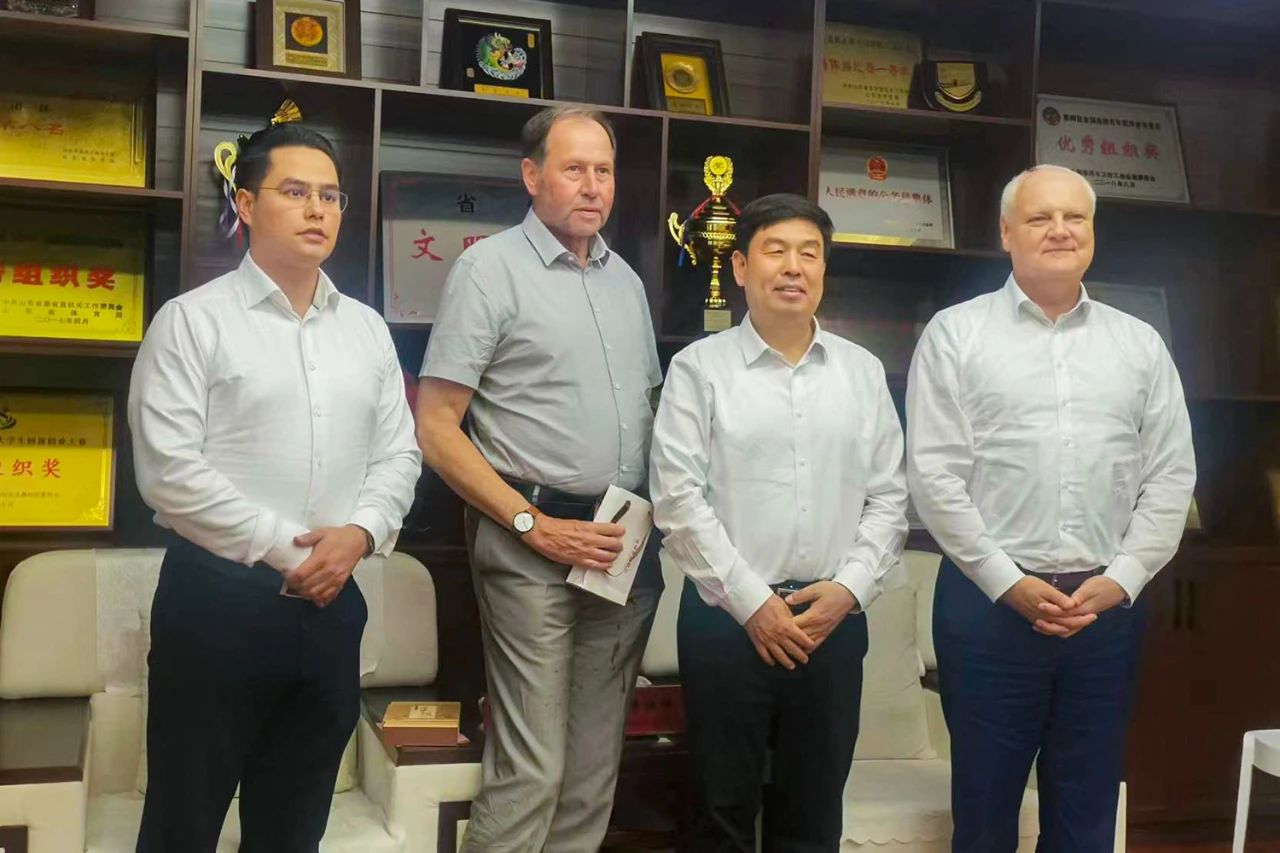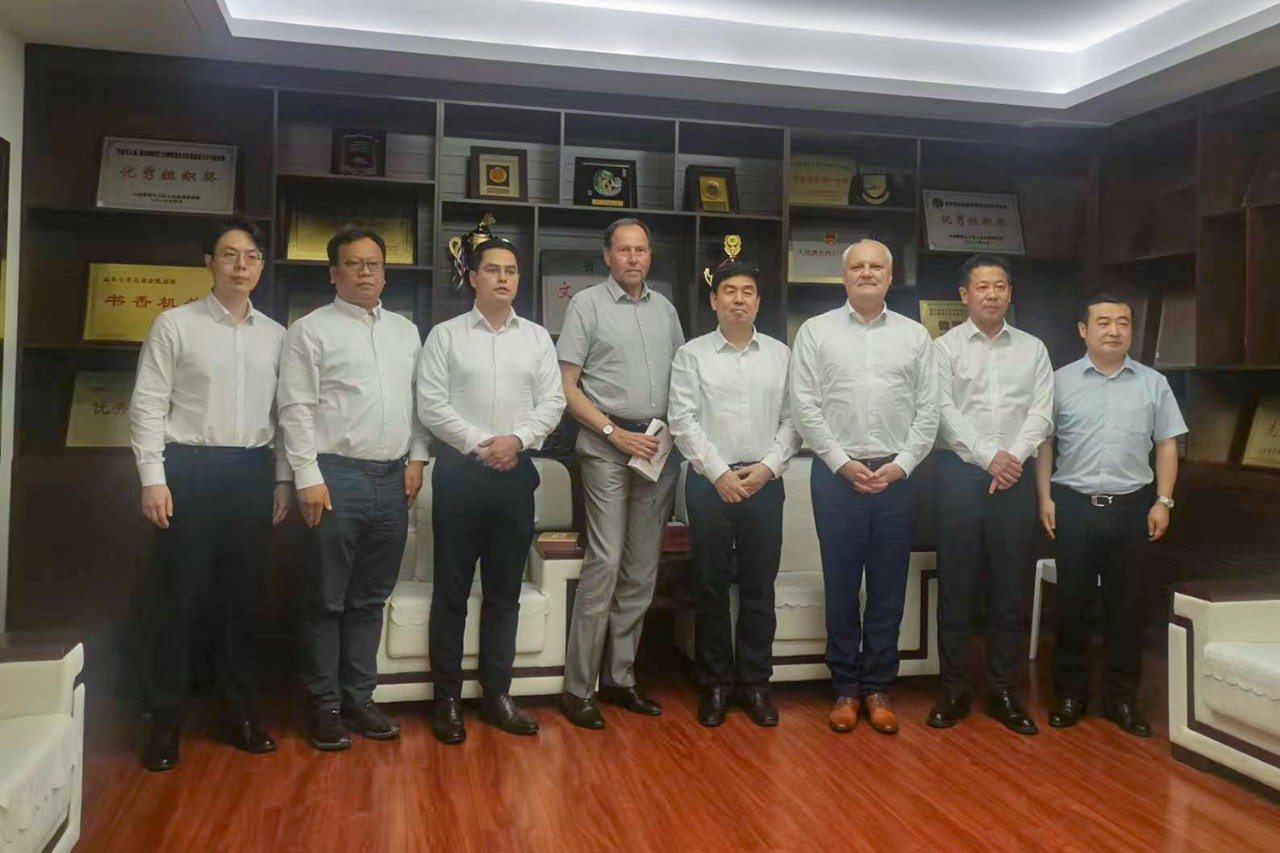On May 26, 2023, Professor Eric Moskwa, the
President of Rhein Koester Group in Germany, and a delegation of six people
visited the Shandong Provincial Department of Education. Xing Shunfeng, Deputy
Secretary of the Education Working Committee of the Shandong Provincial Party
Committee, Deputy Secretary of the Party Group, and Deputy Director of the
Provincial Department of Education, met with the delegation, and both sides had
in-depth discussions on further promoting vocational education cooperation between
Shandong and Germany. Wang Zhigang, Director of the Vocational Education
Division of the Shandong Provincial Department of Education, Guo Li, Deputy
Director of the International Division, Li Xiaotong, Deputy Secretary of the
Education Working Committee of the Zibo Municipal Party Committee and member of
the Municipal Education Bureau Party Group, Wang Cheng, Deputy Head of the
Vocational Education and Continuing Education Section, Pro.Dr.Lothar Budde,
Chairman of the Board of the Bavarian Institute of Education and Digitization
(formerly Vice President of the German Bielefeld University of Applied
Sciences), Cui Zhi, Chairman of Rhein Koester

Vice Minister Xing Shunfeng introduced the basic
situation of education in Shandong Province and the exchange and cooperation
between Shandong and Germany in the field of vocational education. He mentioned
that Germany has a highly developed manufacturing industry and is one of the
countries that first established a systematic vocational education system. It
has a comprehensive, distinctive, and effective vocational education system.
Shandong Province has maintained close cooperation with Bavaria, Germany, as
friendly provinces/states, especially in the field of education. Shandong is
also the first province in China to establish a vocational education innovation
and development highland through joint efforts between the central government
and the provincial government. Vice Minister Xing spoke highly of the
cooperation between Rhein Koester and vocational colleges in Shandong and
suggested further deepening and expanding mutual cooperation and exchange in
the field of education, especially vocational education. He proposed
introducing high-quality vocational education resources in the digital field
from Germany, promoting more cooperation between vocational colleges in
Shandong and vocational education institutions in Germany, and jointly serving
the economic transformation and high-quality development of Shandong Province.

Professor Eric Moskowitz introduced the achievements
of Rhein Koester Group in the integration of industry and education and
international cooperation. The group has established the Bavarian Education and
Digitalization Research Institute, the German Stabilizer Intelligent
Manufacturing Technology Transfer Center, global technology research and
development centers, and high-standard teacher training bases in Germany. It
has also conducted in-depth exchanges and cooperation with leading German
Industry 4.0 enterprises, well-known scientific research institutions, and
universities in the fields of intelligent manufacturing and digitalization. At
the same time, based on the demonstration base for the integration of
production, education, and research in the Zibo High-tech Zone in Shandong, the
group has established integrated Sino-German training centers for high-level
skilled talents, Sino-German technology transfer, and scientific innovation in
multiple regions in China. It has built a virtuous cycle of “industry
empowering education – education nurturing talents – talents supporting
industry,” making positive contributions to local talent cultivation,
technological innovation, and industrial empowerment. He expressed his hope to
further leverage the group’s resource advantages in China and Germany to support
Shandong’s development in high-level skilled talent training, Sino-German joint
teacher training, and the construction of a modern vocational education system.

Professor Lothar Budde shared the dual system
talent training model in Germany using the example of the German University of
Applied Sciences. He mentioned that in the context of Industry 4.0, industrial
transformation will inevitably lead to the transformation and reform of the
education system. Education and industry are closely intertwined and mutually
influential. The dual system education model in Germany not only cultivates
technical talents but also emphasizes lifelong learning. He believes that
Chinese vocational education should explore and absorb the essence of the
German dual system education and explore localized education models that are
more suitable for Chinese institutions. This model should include teaching
methods, curriculum development, and teacher training, spanning multiple levels
such as secondary vocational education, higher vocational education,
undergraduate, and graduate education. The integrated talent training system of
Rhein Koester, which combines production, education, and research, is an
excellent exploration and demonstration. He hopes to collaborate more closely
with Chinese institutions in the future, providing better education and
training resources for enterprise technical backbone, industrial technical
talents, and school students, and enabling them to have excellent vocational
careers in industrial transformation and upgrading.